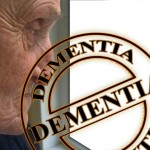 Being underweight in middle-age may raise the risk for dementia later on, while being overweight or obese may protect against dementia, hints the largest study yet to look at the association between body mass index (BMI) and dementia risk.
Being underweight in middle-age may raise the risk for dementia later on, while being overweight or obese may protect against dementia, hints the largest study yet to look at the association between body mass index (BMI) and dementia risk.
“Our findings contradict many but not all previous studies and is currently controversial” Nawab Qizilbash, MBChB, MRCP (UK), head of OXON Epidemiology Ltd, and honorary senior lecturer in epidemiology, London School of Hygiene and Tropical Medicine, United Kingdom, told Medscape Medical News.
The study was published online April 9 in The Lancet Diabetes & Endocrinology.
Using the UK Clinical Practice Research Datalink (CPRD), the researchers analyzed the medical records of nearly 2 million (1,958,191) people with an average age of 55 years at the outset and an average BMI of 26.5 kg/m2. During an average follow-up of 9 years (range, 6.3 to 12.6 years), nearly 45,507 were diagnosed with dementia, at a rate of 2.4 cases per 1000 person-years.
Compared with middle-aged adults with a normal weight (BMI, 20 to 24.9 kg/m2), those who were underweight were roughly a third more likely to develop dementia during follow-up. And the incidence of dementia fell with increasing BMI.
Table. Risk for Dementia by BMI Category
| BMI Category | Rate Ratio (95% Confidence Interval) |
| Underweight (<20 kg/m2) | 1.34 (1.30 – 1.39) |
| Overweight (25 – 29 kg/m2) | 0.81 (0.79 – 0.83) |
| Class I obese (<30 – 34.9 kg/m2) | 0.74 (0.72 – 0.76) |
| Class II obese (35 – 39.9 kg/m2) | 0.69 (0.66 – 0.74) |
| Class III obese (≥40 kg/m2) | 0.67 (0.60 – 0.74) |
The pattern persisted throughout follow-up, after adjustment for potential confounders and allowance for the J-shape association of BMI with mortality, the researchers say.
“The jury is out” on why higher BMI in mid-life might help protect against dementia, Dr Qizilbash told Medscape Medical News. Factors postulated to explain the previously observed protective effect of increased BMI on late-life dementia include low late-life blood pressure; high late-life cholesterol levels; higher leptin levels; age-related regulatory changes in carbohydrate, lipid, or protein metabolism; and increased intake of vitamin E antioxidant and vitamin D. “Clearly more investigation is required,” Dr Qizilbash said.
In a statement, study investigator Stuart Pocock, PhD, from the London School of Hygiene & Tropical Medicine, said the findings “open up an intriguing new avenue in the search for protective factors for dementia — if we can understand why people with a high BMI have a reduced risk of dementia, it’s possible that further down the line, researchers might be able to use these insights to develop new treatments for dementia.”
Not the Final Word
In a linked Comment, Deborah Gustafson, PhD, from SUNY Downstate Medical Center in New York, urges caution in interpreting the findings. “There are some key issues with the study design that influence the validity of the results presented. I hope the Commentary sheds light on this,” she told Medscape Medical News.
She notes that the published literature on BMI and dementia is “equivocal. Some studies report a positive association between high mid-life BMI and dementia, whereas others do not.”
“Many considerations are needed in the assessment of the epidemiology of the association between BMI and late-onset dementia, as is the case for many recorded associations involving late-life disorders,” Dr Gustafson writes. For example, BMI trajectory throughout life, baseline BMI, competing causes of death, and adiposity measurement (total vs central) are “important considerations.”
“To understand the association between BMI and late-onset dementia should sober us as to the complexity of identifying risk and protective factors for dementia. The report by Qizilbash and colleagues is not the final word on this controversial topic,” Dr Gustafson concludes.